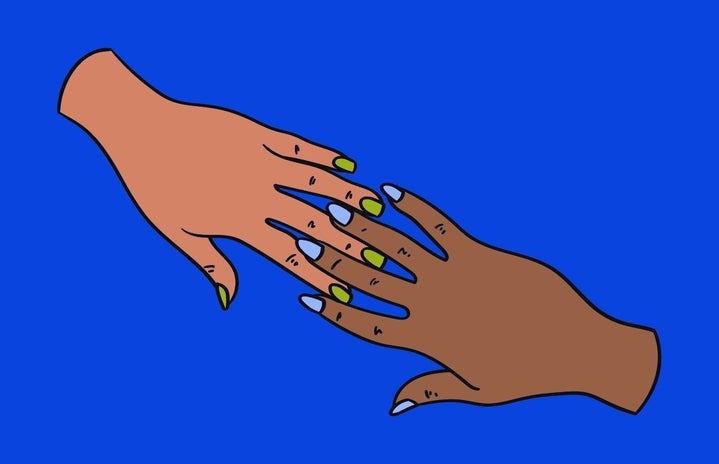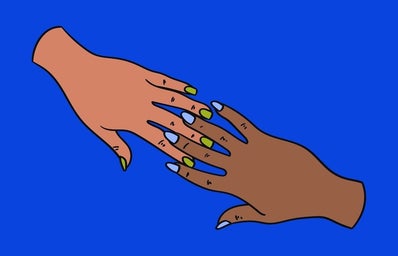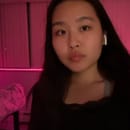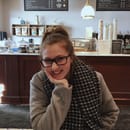“I’m the least racist person I know.”
I’ve heard this statement a countless number of times on various social media platforms, namely TikTok and Twitter. It sounds like a harmless thing to say, but it really is just a pathetic excuse for those born with privilege to avoid speaking up about the rampant and never-ending racial tensions that are dividing the world as I write this. Perhaps being political does not fit your Instagram aesthetic, or maybe it makes you squirm uncomfortably in your seat. If it does, then good.
It took me a really, really long time to finally acknowledge that I harboured internalized racism for my own race. I am fully Chinese and the daughter of immigrant parents who came here with absolutely nothing. They settled in a city near Toronto that mainly consisted of an East-Asian population. As a result, I never had to face any blatant and immediate racism as a child; there was no eye-pulling or being called a “chink”. For this I am very grateful, but that didn’t mean that I wasn’t affected by this broken system of white supremacy, especially as I grew up and began to see the world with a wider and clearer lens.
For me, my internalized racism began at home. Caucasian features like pale skin and larger eyes equated to beauty in my household. I also quickly realized that these beliefs weren’t just shared by my own family, but by my peers as well. In high school, I remember walking to a beauty shop to buy eyelid tape with my friends (a tape that creates an extra fold on my eyes, thus making them look bigger). Relatives who met me once as a baby felt the need to comment how tan my skin was. I spent the summer before sixth grade wishing every day that I could have been born into a Caucasian family with Caucasian features. I would be incredibly embarrassed when my family would speak loudly in Mandarin in public and annoyed when my parents would ask me, their ten-year-old, to translate their tax documents.
Discovering the internet didn’t help my case one bit. This was the first time I was truly exposed to pure racism against Asians, specifically against Chinese and Vietnamese people and immigrants. I didn’t know who these people were, but I’d already seen their true colours — pulling back their eyes, mocking our accents, and portraying Asian women as hypersexual and docile, while emasculating Asian men. What made matters worse was seeing East Asian creators making fun and buying into these stereotypes as well. I thought that it was normal to make fun of and disregard my own race, because others did it as well. After all, at my elementary school, “That’s so Asian!” was an insult. In my head, I thought, “Well, I guess we are just inferior then….”
Thinking back, I cannot believe I ever bought into those ideas and even considered it normal and healthy. The real wake-up call for me was in my first year of university, where I found myself constantly making jokes about being Chinese just to make my white friends laugh. After awhile, I caught myself and couldn’t help but think, “Why am I doing this?” That was the first step to unlearning this hatred and racism. I questioned myself and tried to find the deeper reason. Mine was simply because it was all I ever knew. Despite being around Asian excellence for my entire life, I was so embedded into this system of whiteness that I regarded my OWN race as lesser.
I decided that I would instead celebrate the Asian excellence I’ve witnessed all my life. I proudly supported Asian artists, actors, and musicians instead of hiding it like before. I would no longer hide the foods I enjoyed growing up, even if others found it strange. I also celebrated my hard-working immigrant parents, who aren’t celebrities by any means, but still deserve to be celebrated as such. I thought about all of my friends’ immigrant parents and grandparents who raised us. I looked at my experience of unlearning as an act of true self-love.
For all of my Asian brothers, sisters, and family, I know it is a scary time to just be yourself at this point in the world. It is completely normal and okay to be filled with anger, despair, and hopelessness; I’ve felt a kaleidoscope of all three emotions in this past week. Know that you are not overreacting and your feelings are validated. It is extremely difficult to see people who look just like your mom and grandma get killed and attacked just for the colour of their skin. It’s an uphill obstacle course, but we are going to push through this.



